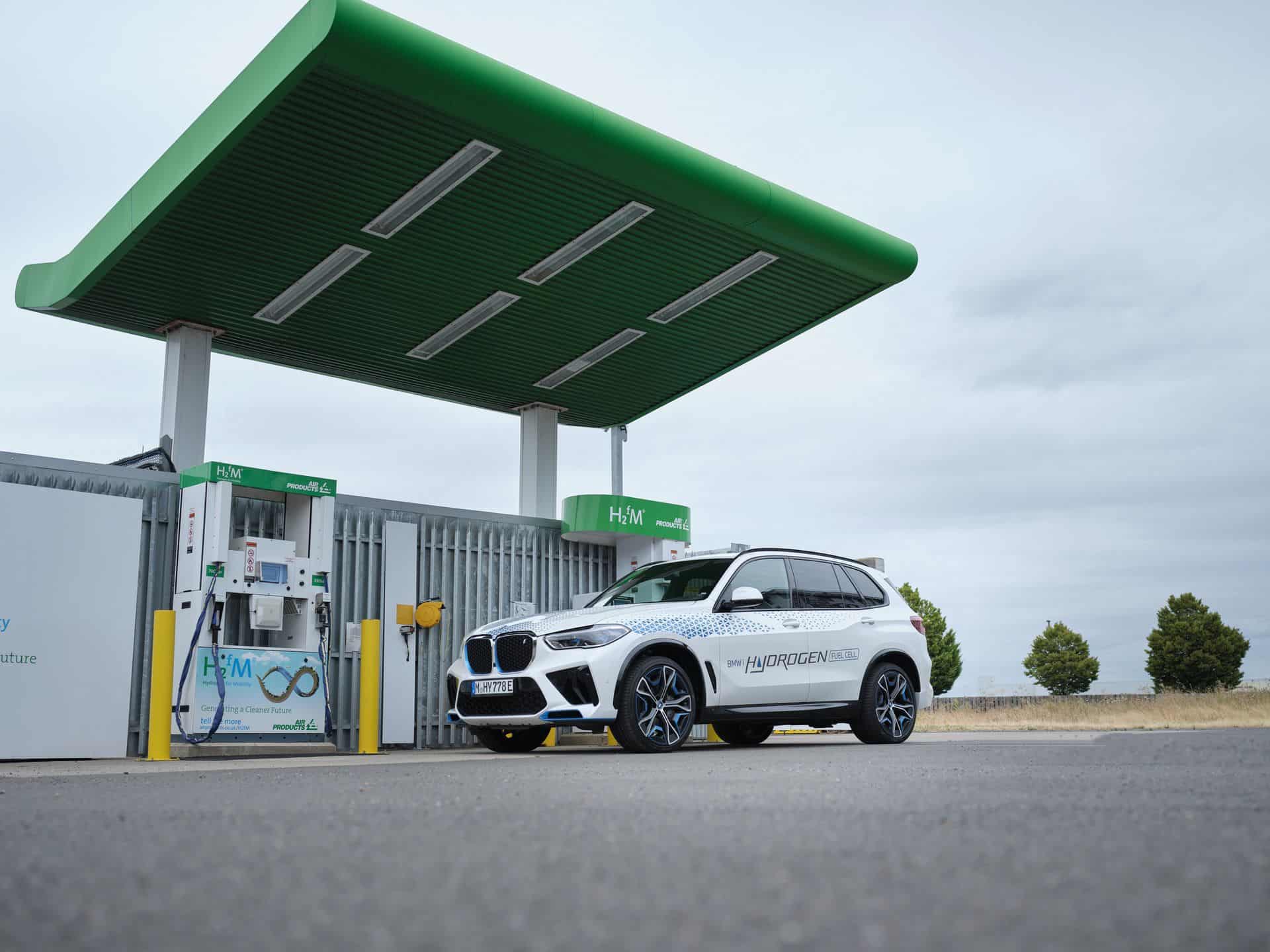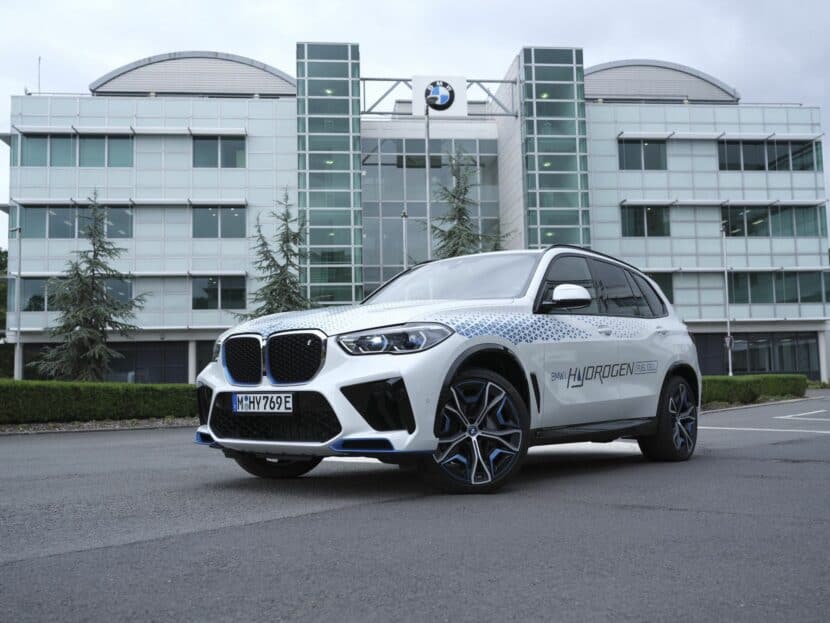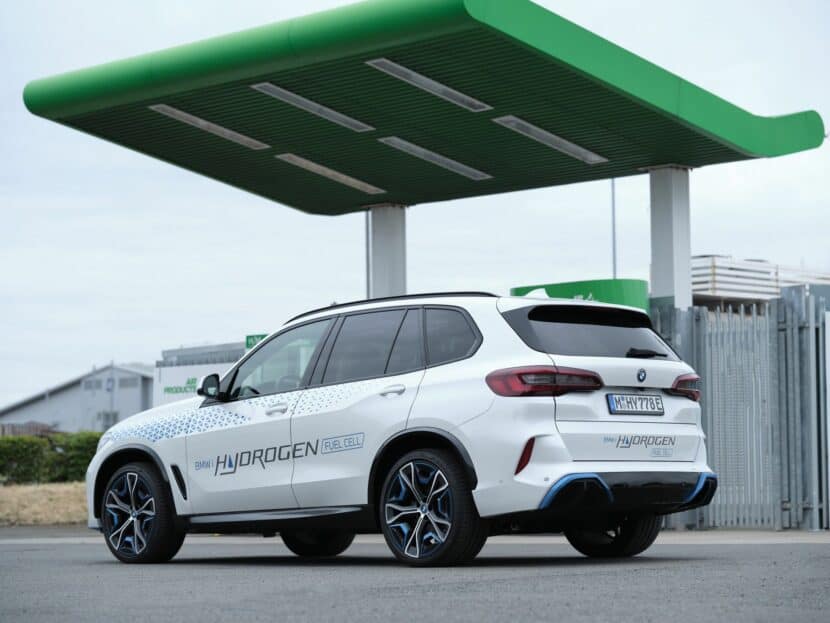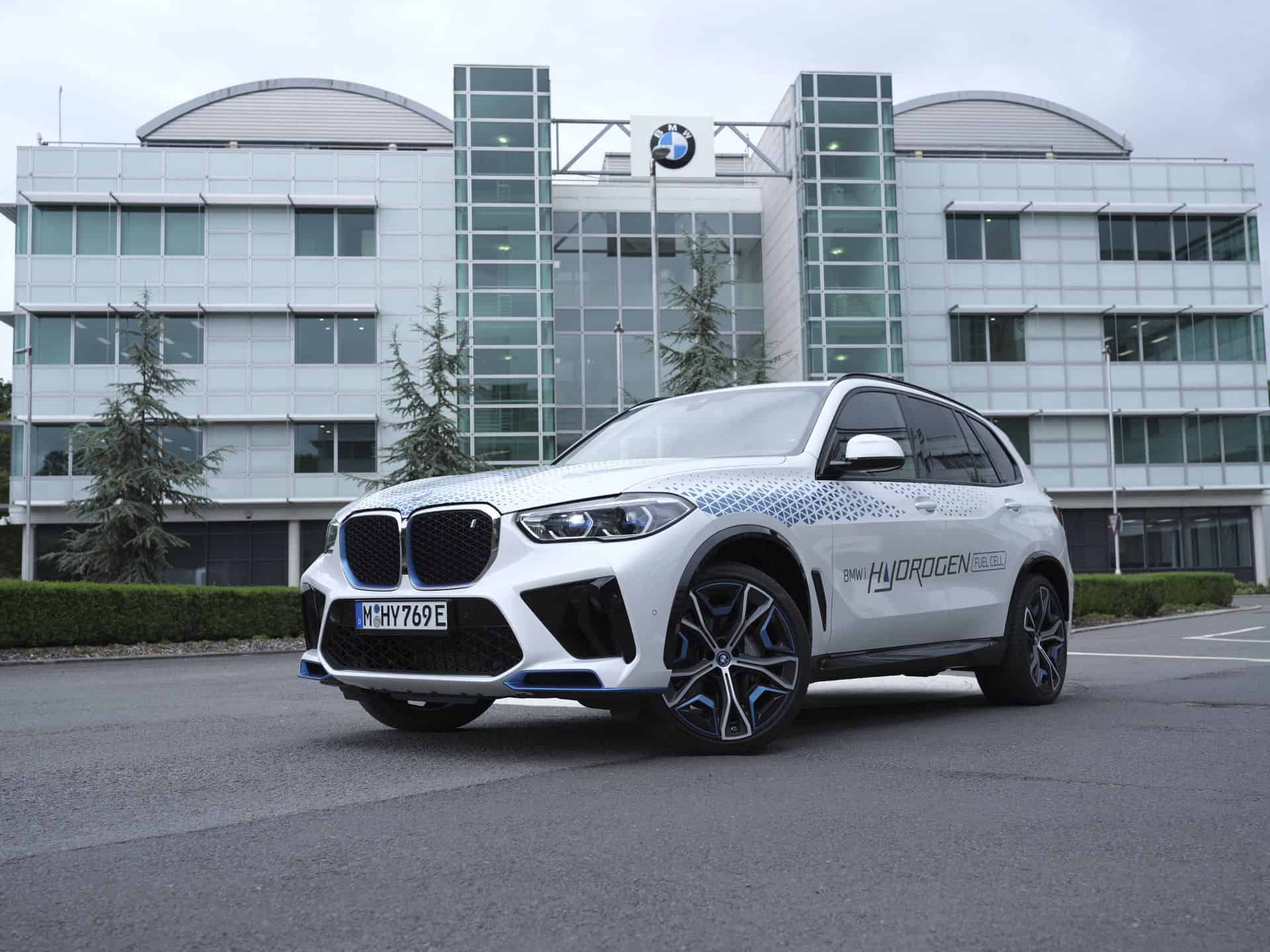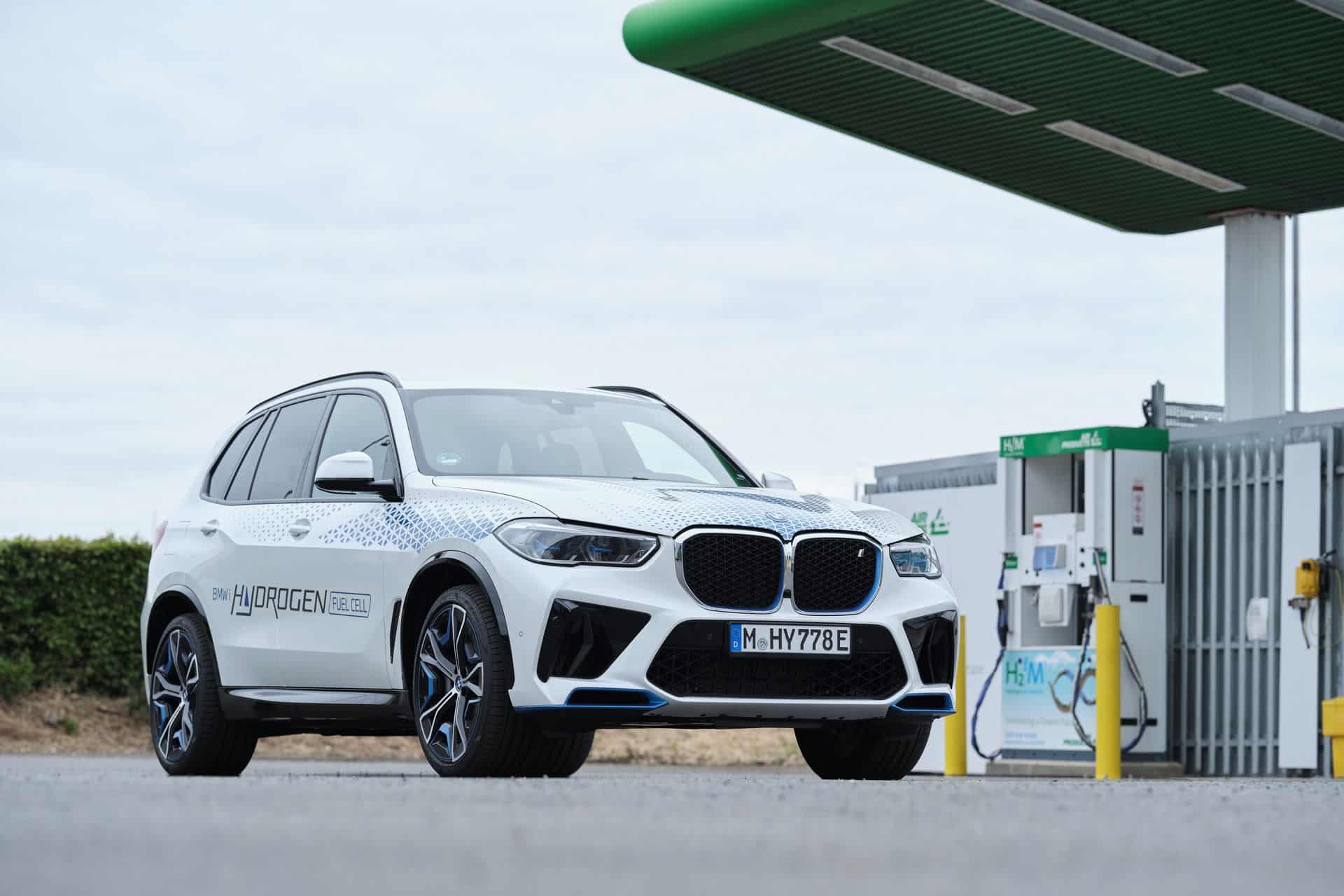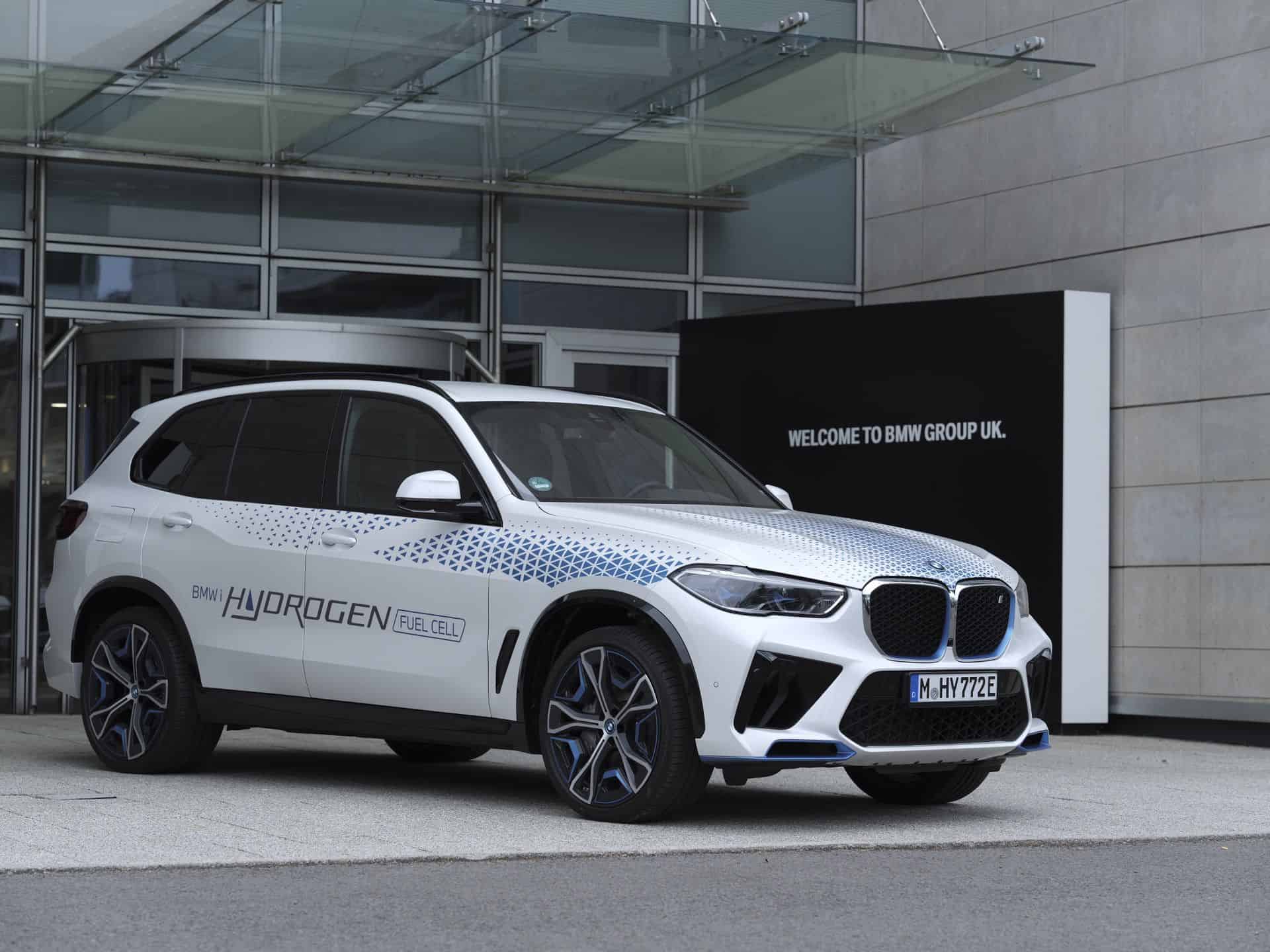BMW Launches iX5 Hydrogen Pilot Fleet in the UK
BMW is embarking on the next stage of its hydrogen vehicle initiative by introducing the iX5 Hydrogen pilot fleet in the United Kingdom. Consisting of fewer than 100 vehicles, this fleet will be deployed globally to showcase and test the technology, offering the public their initial hands-on encounter with this innovative solution.
Although the primary manufacturing of the iX5 Hydrogen platform continues to be centered at the Spartanburg plant in South Carolina, which caters to the majority of the global X5 production, the platform itself is subsequently transported to Munich for the installation of hydrogen tanks.
Production Series BMW iX5 Hydrogen Features Improved Power and Performance
The new BMW iX5 Hydrogen vehicle incorporates numerous technological advancements seen in the recent BMW iX3 or iX models. This includes the integration of BMW’s fifth-generation eDrive electric motor technology. The iX5 Hydrogen features two carbon-fiber hydrogen tanks capable of storing up to 6 kilograms of compressed hydrogen, withstanding a pressure of 700 bar.
The power output of the production series BMW iX5 Hydrogen has been enhanced, increasing from 370 hp to approximately in the previous prototype to 401 hp (295 kW). Out of this total power, 170 hp (125 kW) is supplied by the electrical power fuel cell, while the remaining power is generated by the electric motor. The BMW iX5 Hydrogen has undergone improvements in its straight-line speed as well, resulting in a reduced 0-62 mph acceleration time of less than 6 seconds, compared to the previous time of around 7 seconds. Additionally, the car boasts a top speed of 185 km/h, which is approximately equivalent to 115 mph. To ensure consistent performance, the iX5 Hydrogen was specifically designed with a continuous power output of 125 kW, with energy stored in a buffer battery.
BMW Sees Fuel Cell Vehicles as Complementary to Battery Electric Vehicles
BMW’s decision to invest in fuel cell vehicles (FCVs) stems from their belief that FCVs and battery electric vehicles (BEVs) are complementary options rather than competing technologies. Through conversations with BMW engineers and CEO Oliver Zipse, it is evident that FCVs are not seen as a backup plan but rather an additional mode of transportation. They serve as an alternative for individuals with diverse driving needs, lifestyles, and geographical considerations.
iX5 Hydrogen Fleet in the US to Require Engineer Presence
While BMW has not committed to full-scale production of FCEV BMWs, they are taking steps to deploy a limited fleet of iX5 Hydrogen cars worldwide. Each market will determine which customers will have the opportunity to drive these vehicles. In the United States, the iX5 Hydrogen fleet, consisting of approximately 5 cars, will require an engineer to be present in the vehicle at all times due to homologation requirements. These cars will be utilized for demonstrations and shuttle services.


